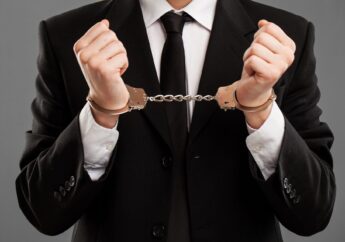Post-Accident Mental Health for Motorcyclists
by Ankita Tripathy Legal Published on: 06 December 2023 Last Updated on: 24 September 2024

Motorcycle accidents not only result in physical injuries but often have a profound impact on mental health. This silent epidemic of post-accident psychological trauma deserves attention and appropriate care.
Legal Considerations And Compensation
In the wake of a motorcycle accident, considering legal action is important, especially to cover the costs associated with mental health treatment. Motorcycle accident law can be complex, and the process of filing a compensation claim requires experienced legal guidance. If you or your loved one was injured in a motorcycle accident and suffered mental health injuries, it is important to contact a motorcycle accident lawyer in Southfield. They can guide you through the legal process and help ensure you receive the compensation you deserve for both physical and mental injuries.
Understanding The Psychological Aftermath
Motorcyclists surviving accidents may face a myriad of mental health issues, including depression, anxiety, and post-traumatic stress disorder (PTSD). The emotional impact of the accident, combined with physical injuries and pain, contributes to feelings of sadness, hopelessness, and anxiety. Symptoms can range from feelings of emptiness, loss of interest in activities, and changes in appetite or sleep patterns to excessive worry and restlessness.
The Stigma Of Seeking Mental Health Treatment
There is often a stigma associated with seeking mental health treatment, but it’s crucial to reframe this as an act of strength and self-care. Like physical injuries that require professional treatment, emotional wounds also need professional care. Below are some of the steps you should consider when trying to cope and seek treatment:
- Seeking Support: It’s important to surround oneself with supportive friends and family. Talking about the experience can be therapeutic.
- Professional Help: Consulting mental health professionals like therapists or counselors is crucial. They offer a safe space to discuss feelings and provide evidence-based treatments.
- Self–Care and Lifestyle Adjustments: Engaging in activities that promote relaxation and joy, maintaining a balanced lifestyle, and practicing good sleep hygiene can aid in mental recovery.
- Self–Help Methods: Activities like volunteering, exercising, and outdoor activities can help in overcoming feelings of helplessness and improve mental health.
The Role Of Legal Advocacy In Mental Health Recovery
Legal advocacy plays a crucial role in the recovery process for motorcyclists who have experienced mental health issues following an accident. A skilled attorney can assist in claiming compensation not only for physical injuries but also for mental health treatments, which are often overlooked. This compensation is vital, as it can cover counseling, therapy, and medication costs, allowing the victim to focus on recovery without the burden of financial strain. An experienced lawyer can navigate the complexities of motorcycle accident law to ensure that all aspects of the victim’s suffering, both physical and mental, are acknowledged and compensated.
Highlighting The Importance Of Awareness And Education
Raising awareness about the mental health impact of motorcycle accidents is essential. Educating the public, health professionals, and legal communities about the prevalence and severity of post-accident mental health issues can lead to more empathetic and effective responses. Increasing awareness also helps in reducing the stigma associated with seeking mental health treatment, encouraging more individuals to seek the help they need following a traumatic event.
Looking Forward: Comprehensive Care For Motorcyclists
The future of addressing post-accident mental health for motorcyclists lies in an integrated approach that combines medical treatment, mental health care, and legal support. Collaboration among health professionals, mental health experts, and legal advisors is key to providing comprehensive care. By acknowledging the interconnectedness of physical and mental health and ensuring access to all necessary resources, we can better support motorcyclists in their journey toward recovery and resilience.
Conclusion
Addressing post-accident mental health for motorcyclists is essential for a full recovery. It involves understanding the psychological impacts, dismantling the stigma around seeking help, utilizing coping strategies, and seeking legal assistance when necessary. Recognizing and addressing these mental health issues is critical for the well-being and recovery of motorcycle accident victims.
Read Also:



































































































